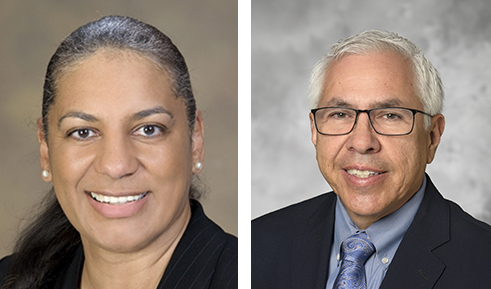 Over the course of the COVID-19 pandemic, the disease has disproportionately affected people based on race and ethnicity. The U.S. Centers for Disease Control and Prevention reports that African American, non-Hispanic people are dying at nearly twice the rate and are being hospitalized at almost three times the rate of white, non-Hispanic people.
Over the course of the COVID-19 pandemic, the disease has disproportionately affected people based on race and ethnicity. The U.S. Centers for Disease Control and Prevention reports that African American, non-Hispanic people are dying at nearly twice the rate and are being hospitalized at almost three times the rate of white, non-Hispanic people.
There also is growing concern about greater hesitancy among African American adults regarding the COVID-19 vaccine. In March, the Kaiser Family Foundation COVID-19 Vaccine Monitor, an ongoing research project tracking the public’s attitudes and experiences with COVID-19 vaccinations, found that one-quarter of African American adults say they still want to “wait and see” how the vaccine works before getting vaccinated, which is somewhat higher than the share of white adults who say the same.
Patricia Harrison-Monroe, PhD, is vice chair of the Department of Psychiatry and a Diversity Champion at the College of Medicine – Tucson. Diversity Champions represent their department in ensuring diversity and inclusion metrics are being addressed and facilitate institutional efforts to ensure that every member of the college is trained on topics that illustrate the benefits of diversity.
She and Francisco Moreno, MD, professor of psychiatry and University of Arizona Health Sciences associate vice president for equity, diversity and inclusion, are both deeply involved in diversity, equity and inclusion initiatives at UArizona. Here, they discuss the reasons behind health care inequities, and how UArizona Health Sciences and the Colleges of Medicine’s diversity and inclusion efforts are establishing avenues to create equity in medicine.

